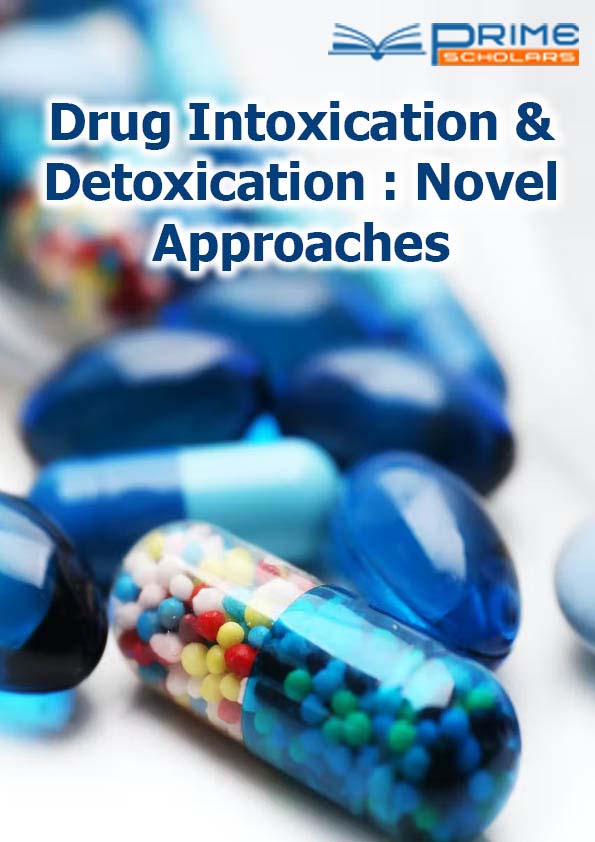Commentary - (2024) Volume 5, Issue 4
Evaluating the Clinical Efficacy of Novel Drug Candidates: Current Trends and Future Directions
Toshikazu Sadao*
Department of Medicine in Drug Discovery, Nagoya University, Japan
*Correspondence:
Toshikazu Sadao,
Department of Medicine in Drug Discovery, Nagoya University,
Japan,
Email:
Received: 02-Dec-2024, Manuscript No. DIDNA-24-22209 ;
Editor assigned: 04-Dec-2024, Pre QC No. DIDNA-24-22209 (PQ);
Reviewed: 18-Dec-2024, QC No. DIDNA-24-22209 ;
Revised: 23-Dec-2024, Manuscript No. DIDNA-24-22209 (R);
Published:
30-Dec-2024, DOI: 10.36648/DIDNA 5.4.34
Description
Drug efficacy refers to the ability of a drug to produce a desired
therapeutic effect when administered under ideal conditions.
It is a critical concept in pharmacology and clinical medicine,
as it directly influences treatment outcomes. The efficacy of a
drug determines its overall impact on disease management and
patient health, and it is essential for clinicians and researchers
to assess it when choosing the appropriate drug for a particular
condition. Efficacy is often defined as the maximum response or
therapeutic benefit a drug can produce, regardless of the dose.
It is determined under controlled, ideal conditions, typically
observed during clinical trials or in laboratory settings. In other
words, efficacy refers to how well a drug performs when given
to a group of patients under carefully monitored circumstances,
such as in a clinical trial, where factors like patient adherence,
environmental influences, and external variables are tightly
controlled. It is important to distinguish between efficacy
and effectiveness, two related but distinct concepts efficacy
refers to how well a drug works in controlled clinical settings
under optimal conditions. Effectiveness refers to how well
a drug works in real world, everyday clinical practice, where
variables such as patient compliance, comorbidities, and nonideal
conditions may affect outcomes. While efficacy is a critical
measure in the development of new drugs, effectiveness is often
a more relevant consideration for clinicians when prescribing
medication to patients. The pharmacokinetics of a drug how it
is absorbed, distributed, metabolized, and excreted can affect
its efficacy. For instance, drugs with poor bioavailability may
not reach the bloodstream in sufficient quantities to exert
their therapeutic effects. Similarly, drugs that are rapidly
eliminated from the body may not maintain therapeutic levels
long enough to be effective. Absorption the rate and extent
of drug absorption can impact its ability to reach the target
tissues in adequate concentrations. For example, drugs that
are poorly absorbed in the gastrointestinal tract may require
alternative delivery methods. Metabolism the speed at which
a drug is metabolized can influence its duration of action. Some
drugs may be metabolized too quickly, leading to suboptimal
therapeutic levels, while others may accumulate in the body
and cause toxicity. Pharmacodynamics refers to the interaction
between the drug and its target receptors, enzymes, or other
biomolecules in the body. A drug’s efficacy depends on its
ability to bind effectively to its target and produce the desired
response. Receptor Binding the strength and specificity of the
drug’s binding to its receptor will affect the magnitude of the
therapeutic response. For example, agonists that bind strongly
to receptors can produce a more potent effect. Dose Response
Relationship The relationship between the dose of a drug and
its therapeutic effect is crucial. A drug’s efficacy often follows
a dose response curve, where increasing the dose initially
increases the effect, but after a certain point, the effect may
plateau. Drug Interactions between different drugs can alter
the efficacy of one or both drugs. Some drugs may enhance the
effects of others, while others may diminish their therapeutic
impact. For example, certain drugs may inhibit liver enzymes
responsible for metabolizing other medications, leading to
higher drug levels and increased efficacy (or toxicity).
Acknowledgement
None.
Conflict Of Interest
The author declares there is no conflict of interest.
Citation: Sadao T (2024) Evaluating the Clinical Efficacy of Novel Drug Candidates: Current Trends and Future Directions. Drug Intox Detox: Novel Approaches. 5:34.
Copyright: © 2024 Sadao T. This is an open-access article distributed under the terms of the Creative Commons Attribution License,
which permits unrestricted use, distribution, and reproduction in any medium, provided the original author and source
are credited.
